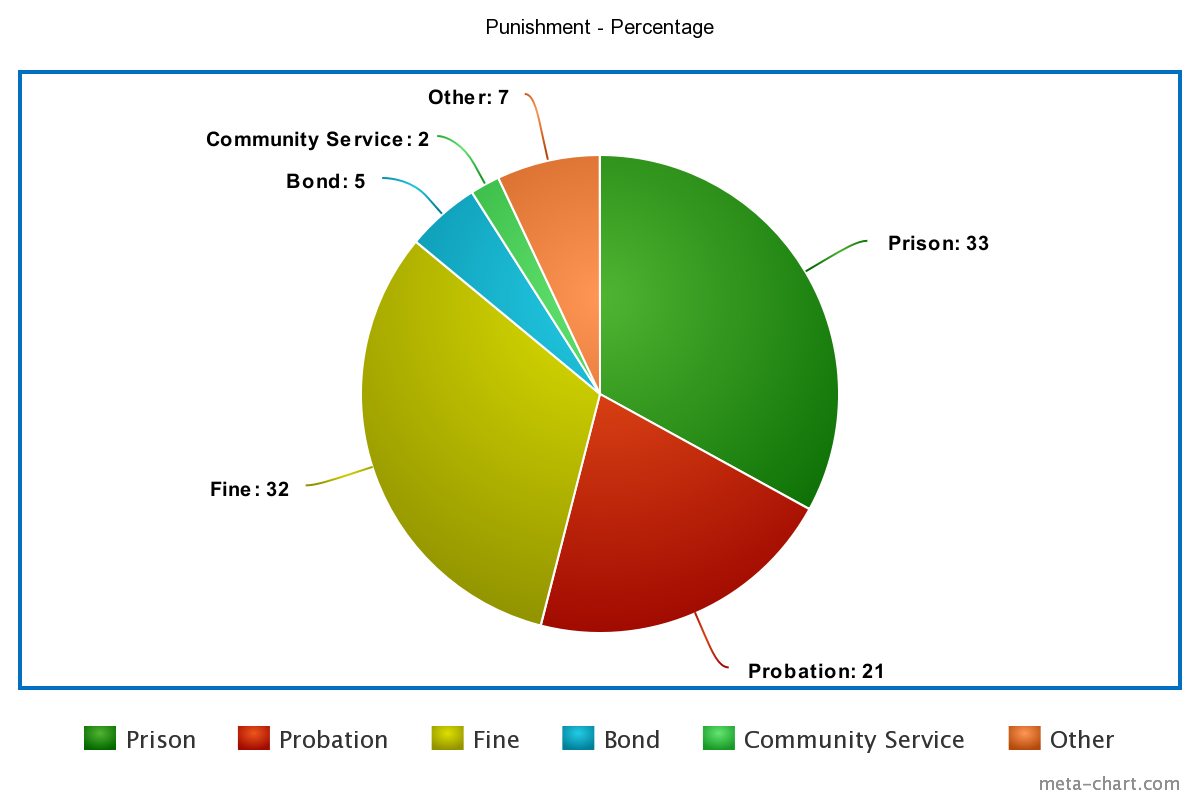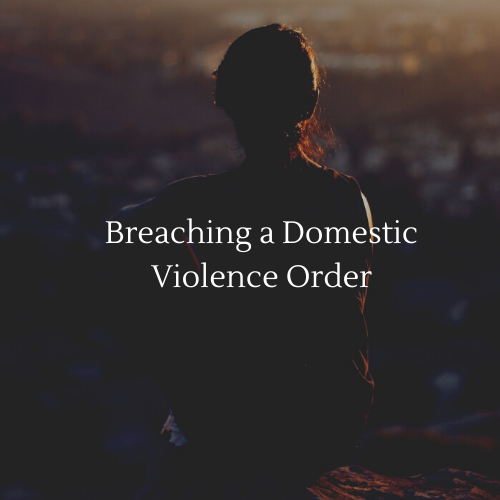The charge of breaching a domestic violence order (contravene a DVO) is on the rise in Queensland. The purpose of this article is to provide information and guidance to someone charged or accused of a breach of a domestic violence order or police protection order (PPN) in Queensland. In Queensland last year there were 28,797 applications for a DVO, the Brisbane Magistrates Court alone had 3,292 applications and Beenleigh Magistrates Court had over 5,200 while Ipswich Magistrates Court had just over 3,000. The amount of DVO’s issued has exploded in recent years given in part by the huge explosion in DVO’s issued and a change in the attitude to breaches of a DVO in the general public and Queensland police service.
If you are charged with a breach of a DVO or even just accused, its critical to get immediate and correct legal advice.
What is a DVO?
Domestic Violence is defined under the Domestic and Family Violence Protection Act 2012 to mean any act or behaviour that towards a person with whom the alleged offender has a relevant a relationship with including;
- Physically or sexually abusive; or
- Emotionally or psychologically abusive; or
- Economically abusive; or
- Threatening; or
- Coercive; or
- In any other way controls or dominates the second person and causes the second person to fear for his/her safety or wellbeing or for that of someone else.
A relevant relationship is:
- An intimate personal relationship; or
- A family relationship; or
- An informal care relationship
When looking at the behaviours listed above the court may have regard to the following acts in deciding if the behaviour complained of is in fact domestic violence;
- Causing or threatening to cause personal injury to someone;
- Coercing a person to engage in sexual activity or attempting to do so;
- Damaging or threatening to damage a person’s property;
- Depriving a person of their liberty or threatening to do so;
- Threatening a person with the death or injury of the person, a child, or someone else;
- Threatening to commit suicide or self-harm so as to torment, intimidate or frighten the person;
- Causing or threatening to cause the death of, or injury to, an animal;
- Unauthorised surveillance of a person; and
- Unlawfully stalking a person.
An application for a DVO can be bought by the aggrieved person or the police. A Magistrate will usually issue a temporary protection order and then make a final determination if a DVO needs to be imposed at a later stage.
If a DVO is ordered by the court, then the person named in the order must abide by all the terms of the order for the length of time the court has set the order. If a person does not follow the DVO then the police can bring a criminal complainant against that person and charge them with breaching a domestic violence order.
While it might make a difference to the penalty even a technical contravention of domestic violence order can have serious consequences.
Who can impose a DVO?
Only a magistrate can make a DVO. A magistrate cannot make the DVO unless he or she determines there is a relevant relationship.
A relevant relationship is defined very broadly under the legislation, and can include intimate relationships, parents, relatives who are related by blood or marriage (step-parents, cousins, half-brother, mother-in-law, aunt-in-law are all included), or even informal (unpaid) care relationships.
So, if there is a relevant relationship and the respondent has committed domestic violence against the aggrieved, and the order is necessary or desirable to protect the aggrieved from domestic violence, the court will make a DVO.
The police can issue a police protection notice (“PPN”) if they believe domestic violence has taken place. The PPN requires the respondent to be of good behaviour and not commit domestic violence against the aggrieved, and may also prevent them from contacting the aggrieved or coming within a certain distance of a premises for a period of time.

Conditions
Every DVO and PPN will contain at least the following condition:
“The respondent must be of good behaviour and must not commit domestic violence towards the aggrieved.”
It is a breach of the condition to get or try to get anyone to do something the respondent cannot do under the order.
Good behaviour is not defined in the legislation, but domestic violence is. Most people know physical violence in a domestic setting is domestic violence, but the legal definition of domestic violence is much broader than this. It can mean behaviour by a person towards another person that is:
- physically or sexually abusive
- emotionally or psychologically abusive
- economically abusive
- threatening
- coercive
- controlling
- in any other way controls or dominates another person and causes the person to fear for their safety or wellbeing or that of someone else.
Other Conditions
While the mandatory condition of being of good behaviour and not committing domestic violence toward an aggrieved is on every PPN and DVO, there are also other conditions the court (or police) can impose:
The court or police may impose a condition on the respondent that—
- prohibits the respondent from approaching, or attempting to approach, the aggrieved or a named person, including stating in the order a distance within which an approach is prohibited; or
- prohibits the respondent from contacting, attempting to contact or asking someone else to contact the aggrieved or a named person, including, for example, if the aggrieved or named person has taken shelter at a refuge; or
- prohibits the respondent from locating, attempting to locate or asking someone else to locate the aggrieved or a named person if the aggrieved or named person’s whereabouts are not known to the respondent; or
- prohibits stated behaviour of the respondent towards a child of the aggrieved, or a child who usually lives with the aggrieved, including prohibiting the respondent’s presence at or in a place associated with the child.
To summarise, a police officer (under a PPN) or Court (under a DVO) may impose conditions which prevent a person from contacting the aggrieved, going near the aggrieved, living with the aggrieved or posting online about the aggrieved or doing any of these things to a named person on the notice or order (often a child).
Bear in mind, it is common for the Court to allow contact between the aggrieved and respondent for the purpose of making child arrangements.
How many contraventions of a DVO occur in South-East Queensland a year?
The table below sets out how many breaches of a DVO were taken to court in Southeast Queensland over the last few years
|
Location |
2020-21 |
2021-22 |
|
Beenleigh |
2,912 |
2,899 |
|
Brisbane |
2,211 |
2,733 |
|
Southport |
1,983 |
1,887 |
|
Ipswich |
1,355 |
1,600 |
|
Maroochydore |
1,465 |
1,523 |
|
Caboolture |
880 |
975 |
|
Redcliffe |
722 |
651 |
|
Bundaberg |
576 |
705 |
|
Richlands |
749 |
632 |
|
Pine Rivers |
627 |
491 |
|
Cleveland |
430 |
487 |
|
Hervey Bay |
371 |
282 |
What does breaching a DVO mean?
Section 177 creates the offence of contravention of a domestic violence order. The law states that;
(1) This section applies if a respondent against whom a domestic violence order has been made—
(a) was present in court when the order was made; or
(b) has been served with a copy of the order; or
(c) has been told by a police officer about the existence of the order.
(2) The respondent must not contravene the order.
Penalty—
(a) if, within 5 years before the commission of an offence against this subsection, the respondent has been previously convicted of a domestic violence offence—240 penalty units or 5 years imprisonment; or
(b) otherwise—120 penalty units or 3 years imprisonment.
In order to be convicted of an offence of breaching a domestic violence order, the respondent must have been present in court when the order was made or served with a copy of the order or told about the existence of the order by a police officer. The respondent may be told of the order by a police officer in any way, including by telephone, email, SMS, a social networking site or other electronic means.
The prosecution bears the onus of proving, beyond reasonable doubt that the police officer told the respondent about the existence of the order or of a condition of the order.

What acts can be considered as breaching a DVO?
The courts have broadly defined the types of actions that could be considered breaching a DVO. If an order prevents contact then any attempt to contact the aggrieved through any communication method will likely be considered by the court as a breach.
Often the DVO has a terms that the respondent must be of good behaviour to the aggrieved and not commit and act of domestic violence. We have seen the courts find a breach of this condition in the following circumstances;
- Removing or hiding the aggrieved phone
- Grabbing a TV remote from the aggrieved hand
- Pushing the aggrieved into a hallway
- Verbally abusing the aggrieved
- Hiding the aggrieved car keys or purse
Common Pitfalls
- When there are children involved the court order will commonly allow communication between the respondent and the aggrieved for the purpose of making child arrangements. This will only be necessary where the respondent is not allowed to be near or communicate with the aggrieved. This is where a lot of people get tripped up; the communications must only be for the purpose of child arrangements. We have seen countless examples like the following: text one, “Hi, can I please see Caleb on Sunday at 11am, usual place?” Then text two, “Miss you, I wish things had been different, I wish we were still a family”. The second text is a breach of the DVO because it is not related to child arrangements. One might find it hard to believe someone would report a breach for such a text, but it does happen quite a lot.
- Invitation is a common one. When a respondent is restrained from contact with an aggrieved, and there are no exceptions in the order, that means no contact full stop. If the aggrieved invites the respondent over, it is still a breach if he goes. If the aggrieved contacts the respondent, maybe with a barrage of texts along the lines of “I love you, I want you back, forget the order, TALK TO ME” if the respondent did respond in any way, even if it is just to say “I can’t contact you, leave me alone”, that is still a breach. Most of the time a police officer is not going to charge someone for that, but it is technically possible. The best option is just to ignore or block the number.
- Sometimes there are accidental encounters. For example, maybe the respondent lives in the same suburb and bumps into the aggrieved at the local supermarket. That will be fine if it is an accident. But staying in the orbit of the aggrieved or saying ‘g’day’ would be a breach. It is best to be mute and walk away.
- The aggrieved has invited over the respondent, and he or she is allowed near because the only requirement is to be of good behaviour and not domestically violent. However, an argument ensures. Maybe the aggrieved starts pushing or hitting the respondent; if the respondent does anything back, even to defend his or herself, that is a reportable breach.
- Social media. The respondent is barred from posting anything about the aggrieved online. There have been cases where even though the court order allows the respondent and aggrieved to communicate for child arrangements, the aggrieved simply refuses to make any arrangements. The respondent may post on Facebook something like, “To any parents out there who won’t let your child see their father, understand you are not just ripping the heart out of the dad, you are doing that to your child as well”. Even though the post does not name the aggrieved, the person may be charged for a breach because it is strongly implied who they are really talking about. In this situation where not contact is being allowed by the aggrieved, it is best to take the matter to family court. That may be the only way to get some contact
What happens if you breach a DVO or PPN in QLD?
If you are accused with contravening a DVO or police protection notice then the police will investigate all complainants. They will likely seek statements from the aggrieved and the respondent. Never give a statement to police unless you have received legal advice to do so. In most cases giving a statement to police is not a good idea and can lead to a charge or more charges than if you had not said anything to police. You have a right to not talk to police about the allegations.
If the police do bring charges then they will either arrest you or give you a notice to appear in your local magistrates court.
The Magistrates court will deal with most DVO breach charges however in certain serious cases the District Court may deal with the charge.
Is breaching a DVO a criminal offence?
Yes it is. Unlike the application for a DVO, a breach is a criminal charge. The court can decide not to record a conviction for the offence in appropriate circumstances. In deciding whether to record a conviction the court is looking at;
- the nature of the offence; and
- the offender’s character and age; and
- the impact that recording a conviction will have on the offender’ economic or social wellbeing; or chances of finding employment
What penalties can be imposed?
The act specifies the maximum penalty as 3 years imprisonment unless the person has been convicted of breaching a DVO in the last 5 years, in that case the maximum penalty increases to 5 years.
In practice the court will look at the following factors in deciding a penalty;
- What was the exact nature of the breach, was it serious or was it more of a technical breach
- Does the defendant have an criminal history and if so for what and how recent was it
- Was any violence used in the breach
- Were any children present during the breach
- What impact did the breach have on the aggrieved?
- The timing of the breach i.e. how long was the DVO in place before it was breached
- Was it an early plea of guilty
- Is the defendant sorry for his or her actions?
- How old is the defendant?, youthful defendants will often receive a lesser sentence
Often a charge of breaching a DVO will not be on its own but can also come with assault and property damage charges. If a respondent is in that situation, they are in serious trouble and should certainly seek legal advice.
The court must also take account of the provisions of section 9 of the Penalties and Sentences Act. In summary those are that the purpose of the sentence is to punish the offender to an extent or in a way that is just in all the circumstances, facilitate avenues of rehabilitation, deter the offender and others from committing a similar offence, make it clear that the community denounces the conduct in this offence, and protect the community.
In R v Fairbrother; ex parte A-G (Qld) [2005] QCA 105, McMurdo P provided useful guidance for sentencing Judges saying (at para 23):
Domestic violence is an insidious, prevalent and serious problem in our society. Victims are often too ashamed to publicly complain, partly because of misguided feelings of guilt and responsibility for the perpetrator's actions. Members of the community are often reluctant to become involved in the personal relationships of others where domestic violence is concerned. Perpetrators of domestic violence often fail to have insight into the seriousness of their offending, claiming an entitlement to behave in that way or at least to be forgiven by the victim and to evade punishment by society. Domestic violence has a deleterious on-going impact not only on the immediate victim but on the victim's wider family and ultimately on the whole of society. It is not solely a domestic issue; it is a crime against the State warranting salutary punishment. The cost to the community in terms of lost income and productivity, medical and psychological treatment and on-going social problems is immense. Perpetrators of serious acts of domestic violence must know that society will not tolerate such behaviour. They can expect the courts to impose significant sentences of imprisonment involving actual custody to deter not only individual offenders but also others who might otherwise think they can commit such acts with near impunity.
In general the types of penalties the court can impose in order for least to most serious are;
- Good Behaviour bond; or
- Fine; or
- Community Service; or
- Probation; or
- Suspended term of imprisonment; or
- Imprisonment with immediate parole; or
- Intensive Corrections Order; or
- Actual imprisonment
Only an experienced lawyer will be able to tell you the likely outcome.
The penalties the court imposed in 2021 (in percentage)

As you can see prison forms part of the sentence in 33 % of cases.
Up to date statistics can be found by clicking here
Are there any defences to breaching a DVO?
Broadly the defences would be;
- The respondent did not know about the DVO
- The respondent did not commit the acts alleged at all
- The respondent committed the act but their actions did not breach the DVO
We have successfully had charges dropped because the respondent was not told of the order before the alleged breach.
Another defence may be that the accused simply did not breach the order; i.e. argues he never made a phone call or committed domestic violence.
DVO and PPN breaches are hard to defend and we recommend speaking to one of our lawyers if you have been charged but don’t believe you breached.
How can I amend a current DVO?
You can seek a court order to vary a DVO. The variation application would be heard by the Magistrates Court. If you are asking to remove conditions that will reduce the protection of the aggrieved, you will need to explain how the circumstances have changed, and how everyone will remain protected from domestic violence.
The safety, protection and wellbeing of people who fear or experience domestic violence, including children, is most important factor for the courts.
The police will often make submissions to the court whether to vary the order or not.
Technical breach
A technical breach is one where there is no malice or threat but something occurred that did breach the terms of the DVO. Mostly we see this where contact is allowed under the DVO for communication about children of the relationship but not about anything else and the respondent has called and spoken about the children then made comments or sent texts even as innocent as happy birthday. The term technical breach is widely used in the courts but not defined in the legislation.
A technical breach can still be prosecuted and the facts its such a common term in the courts shows that it often is. A technical breach can still lead to serious penalties.

The aggrieved invited me to stay and now I’m being charged?
You need to read the conditions of the DVO carefully. If the DVO states you are not allowed to have contact or be within a certain distance then unless the DVO states the aggrieved can give permission to the respondent to attend the premises then you can be charged with breaching the DVO. We have had situations where the client has alleged the aggrieved allowed them to attend the premises, they went, an argument occurred and the police arrived the aggrieved said they never gave permissions to come there so the client was arrested. In that example we were about to show the prosecutor the aggrieved lied and the charged were withdrawn.
Can the charges be dropped?
Given recent press coverage of violence towards women prosecutors are extremely reluctant to withdraw charges. If a coherent and detailed submissions can be put to them showing the act of domestic violence could not have occurred or not occurred as alleged or the actions of the respondent did not breach the DVO conditions the prosecutor will carefully consider that. This is again an area that only an experienced DVO breach lawyer can advise on.
We have an article about Negotiating with a Prosecutor in Queensland
My partner doesn’t want the police to go ahead with the prosecution.
The police, if they think a breach of the DVO has occurred, can and almost always will continue with the prosecution even if the aggrieved does not want the prosecution to continue. The police often assume that if the aggrieved wants to stop the prosecution they are doing so under pressure from the respondent. This is complicated area of the law and would require a lawyer to advise further. Please note a lawyer cannot advise or act for both the respondent and the aggrieved as this would be a breach of the ethic rules.
I have been charged with another offence and they say its in a domestic setting
Certain offences in Queensland can be more serious if they were committed in a domestic setting. Those types of charges include choking, suffocation or strangulation, assault or unlawful entry. If alleged this can increase the potential penalty.
Can I ask the court to change the DVO if I plead guilty?
The court must decide after the sentence whether to modify the current DVO. There would almost no circumstances where the court would reduce or withdraw a DVO after sentencing someone for breaching a domestic violence order. More likely the court would be looking to extend the length of the DVO or increase the conditions on the DVO.

The police want to talk to me about a DVO breach what do I do?
Our advice is never talk to the police unless a lawyer advises its ok and in 99% of cases a lawyer is likely to advise you to not talk to the police. Remember its extremely unlikely you can talk yourself out of a DVO breach charge but very easy to talk yourself into a DVO breach charge. Just a few ill spoken words can lead to a charge. If you have a defence its better to say nothing to the police and if charged your lawyer can enter into negotiations with the prosecutor to have the charge withdrawn.
The police are experts at talking to a suspect and trying to have them admit things, they train for that, you are extremely unlikely to have any experience with police and interrogation techniques so take advantage of your right to silence. Not talking to police doesn’t make you look guilty, it makes you look smart.
We have a full article on Your right to silence
Is contravening a DVO the same as breaching it?
Yes, the terms contravene a DVO and Breach a DVO are the same.
What does aggrieved and respondent mean?
The aggrieved is the person who the DVO protects and the respondent is the one that the DVO is issued against.
Should I get a Lawyer?
Yes, yes and yes. A breach of a DVO is a serious charge and viewed so by the Magistrate and the Prosecutor. You do not want to face a court by yourself with this charge. There are serious penalties that can be imposed and the court must also decide whether to record a conviction or not. If a conviction is recorded you could be prevented from travelling overseas or getting certain jobs or work contracts. Courts have been cracking down on DVO cases lately and the pressure to apply harsh sentences is only increasing.
An experienced criminal defence lawyer will know what the Magistrate wants to hear to reduce the penalty and how to negotiate with the prosecutor where necessary.
How can Clarity Law help me?
We can potentially help with;
- Reducing the penalty
- Negotiating with the prosecutor
- Being on your side and standing up for you in court
- Reducing your stress about dealing with the allegations
- Getting no conviction recorded

Steven Brough (Founder Clarity Law)
What will it cost to get a lawyer?
We can provide you with a fixed fee for all our work once we understand the seriousness of the charges. In general we charge $3,500 for a guilty plea to a breach of a DVO.
The fixed fee will cover all costs, there will not be any unexpected further fees, extra charges or additions.
Simply contact us and we are happy to provide a quote.
If I’m going to engage a Lawyer why should I engage Clarity Law?
At Clarity Law we are experts in Queensland criminal law. We are in the court every single day helping people with criminal charges. We have handled hundreds of breaches of DVO.
We are also a no pressure firm which means feel free to ring, we can give initial advice and help but you aren’t pressured to engage us but of course we are more than happy if you do.
We cover all courts in South East Queensland from Southport to Ipswich and Beenleigh to Hervey Bay. We are also only a criminal law firm, we don’t do any other type of law so we are in the courts every day helping people with charges like this. We will also have a local office to you but in many cases we can use zoom, email and phone calls so you never need to attend our office.
We never judge people, that’s not our role, we are there to help people through a stressful and worrying time with care and expertise and get them the best result possible. We are literally the people on your side.
Can’t I just use a Duty Lawyer to help me?
Duty Lawyers are great however the problem is they are just overworked and cannot devote more than a few minutes to each person in court, that means they likely won’t have time to negotiate with the prosecutor nor properly prepare for a sentence. We have an article that might provide more information - Should I use a Duty Lawyer for my Case?

Do you have an office near me?
We appear in every court in South East Queensland between The Gold Coast and Bundaberg and out to Ipswich and beyond. We also have a 5 star rating on Google and Facebook. Check out of customer testimonials here. We have offices at:
|
Sunshine Coast Level 3, 14-18 Duporth Ave Maroochydore 4558 Phone: 1300 952 255 |
Brisbane Level 1, 16 McDougall St Brisbane Phone: 07 3067 7017 |
|
Beenleigh Level 2, 3972 Pacific Highway Loganholme Phone: 07 3668 0683 |
Ipswich 16 East Street Ipswich Phone: 07 3485 0147 |
|
Hervey Bay Unit 3, 6 Liuzzi St Pialba QLD 4655 Phone: 07 4408 6717 |
Southport Level 15, 2 Corporate Court Bundall Phone: 07 5613 2683 |
|
Pine Rivers 3/22-24 Strathwyn Street Brendale Phone: 0734850184 |
What courts do you appear in?
We appear in every court in Southeast Queensland representing people charges with breaching a DVO including the following courts;
Brisbane
Holland Park Pine Rivers Redcliffe
Gold Coast
Beaudesert Coolangatta Southport
Sunshine Coast
Caloundra Caboolture Maroochydore
Ipswich
Darling Downs
Fraser Coast
Gympie Hervey Bay Maryborough

Other articles that may be of interest
Negotiating with a Prosecutor in Queensland
The difference between a conviction and non-conviction
Should I use a Duty Lawyer for my Case?
Deciding How to Plead to a Criminal Offence
Sentences of Imprisonment in Queensland
Ultimate Guide to Breaching a DVO – Part 2
What would happen if I contacted you?
Your call, email or contact us form will be handled by our founder Steven Brough or client liaison manager Belinda Smyth. They have over 45 years legal experience between them. They can give immediate advice and assistance. We will discuss your case, provide guidance and send a fixed price quote by email with additional relevant information about your contravene DVO charge, all at no cost.
If you want to engage us then it’s easy, there is a form you can complete online. If you don’t want to engage us or want to engage another firm that’s fine, you won’t be hassled and at worst you will just have more information about your charge. Once engaged one of our lawyers will go through your matter and contact you to discuss what the best way forward is to achieve the best results. Every one of our lawyers are very experienced with thousands of courts appearances between them and they know the courts and the Magistrates and Judges.
You will never be hassled to come with us, you will get advice and quote and left alone to make a decision. We hope you will engage us but its completely up to you. The most important thing is to find a lawyer you trust and feel comfortable with.

I’ve heard bad stories about lawyers I’m worried I’ll be ripped off or not have a good lawyer
We understand, often lawyers don’t have the best reputation.
Since we were established in 2010 we have provided quotes and fixed fees so people know exactly how much they will need to pay in legal fees. You can take this quote and compare it with other lawyers. We won’t be the cheapest given how experienced we are but we will provide a competitive quote that we think represent great value.
Steven Brough the firms founder, a lawyer since 2001, is known throughout the courts in Queensland as a talented and entirely ethical lawyer. He has instilled these values in all our lawyers. Every Lawyer at Clarity Lawyer is experienced, has worked for the firm for years and has impeccable reputations.
You can also read our online reviews that shows how much we care about our clients the results we achieve. Otherwise give us a ring and trust your instincts on whether you think we are the right firm for you.
Will I be able to talk to my lawyer?
Of course, you will have the email address and mobile number of your lawyer. Your lawyer will keep you updated every step of the way and in the unlikely situation where you can’t get hold of your lawyers (they might be in court for example) you can ring our main office and they can assist immediately.
How do I get more information or engage Clarity Law to act for me?
- If you want to engage us or just need further information or advice then you can either;
- Use our contact form and we will contact you by email or phone at a time that suits you
- Book a time for us to call you
- Call us on 1300 952 255 seven days a week, 7am to 7pm
- Email This email address is being protected from spambots. You need JavaScript enabled to view it.
Disclaimer: This article is for general information and is not legal advice. The law or the practice of the court may have changed since this article was published. Always obtain legal advice if you need to appear in court.
Liability limited by a scheme approved under professional standards legislation



